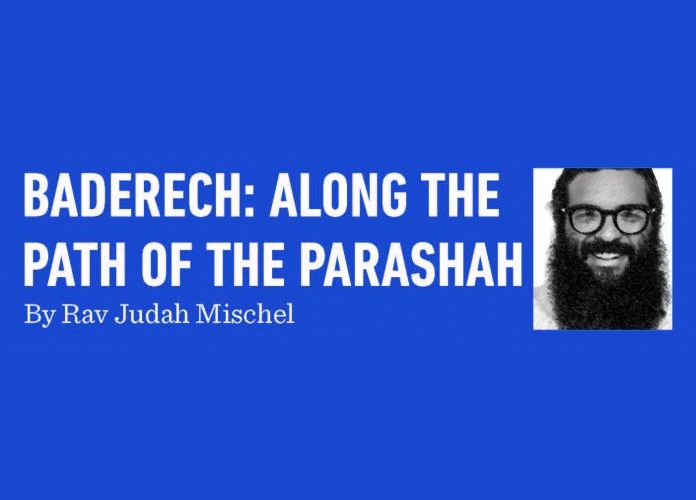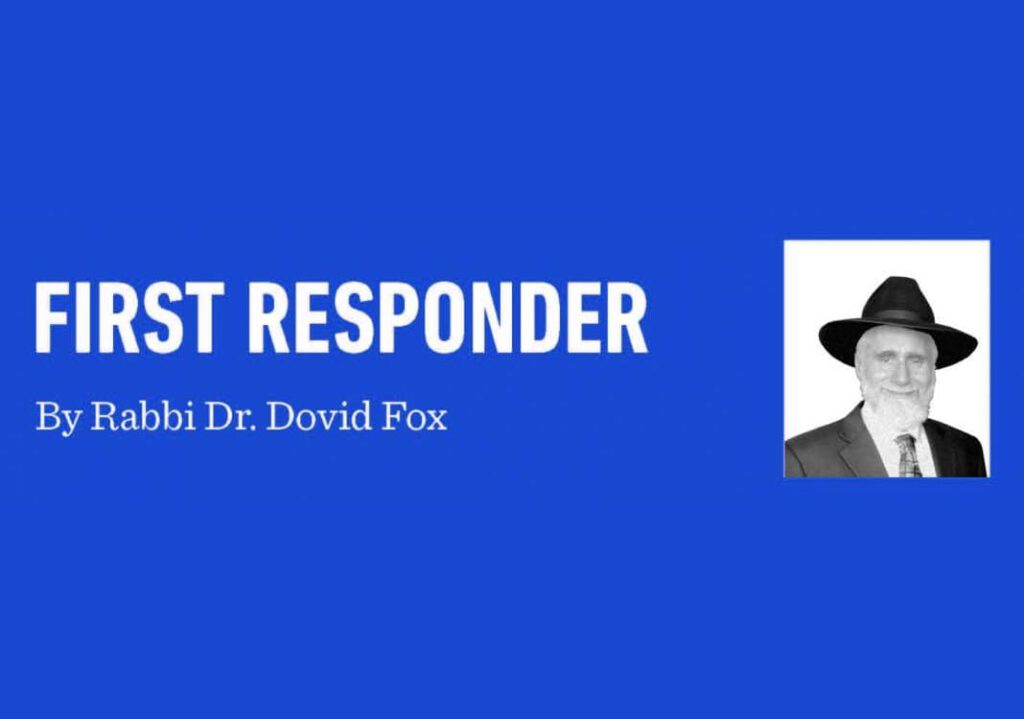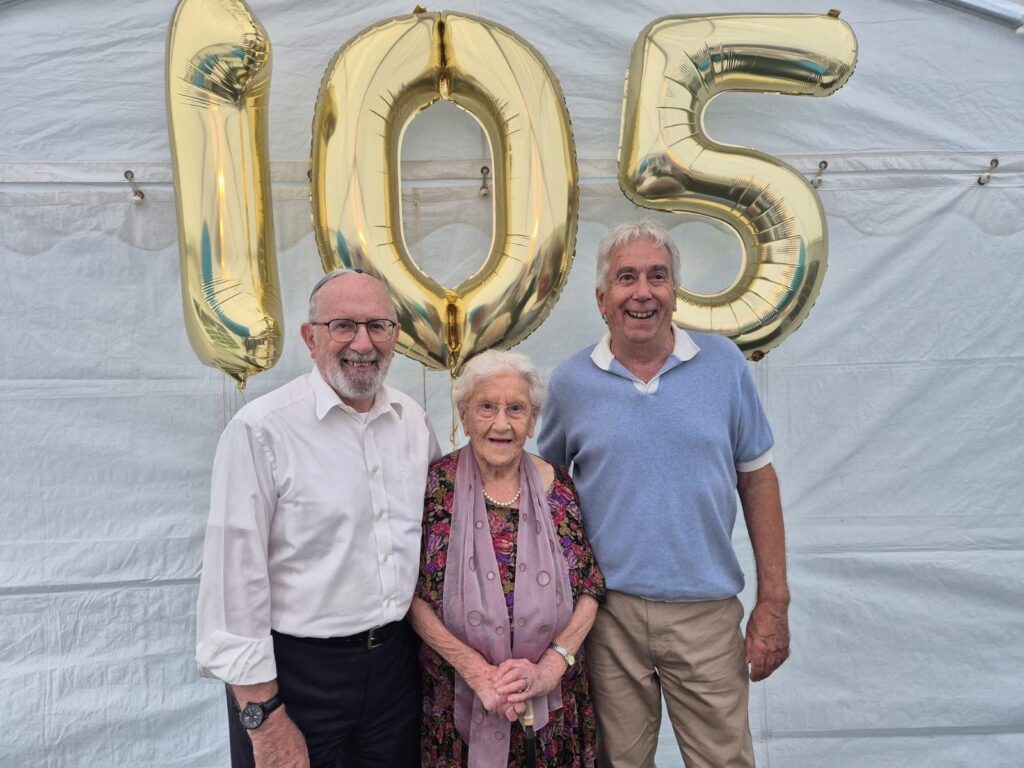Re’eh: Anochi
Rav Zeidel Epstein, zt’l, the sagacious mashgiach ruchani of Torah Ohr in Yerushalayim, was respected for his wisdom and beloved for his stellar middos tovos. Having learned closely with Rav Shimon Shkop in Grodno for close to two decades, he was a long-time chavrusa of Rav Yisroel Zev Gustman, who would later become the youngest dayan on the Vilna Beis Din. Through a miraculous chain of events Reb Zeidel secured passage on a cargo ship carrying only cattle, docking in the United States in 1939, on the very day that the war broke out in Poland.
Rav Zeidel had a major impact on the nascent, developing yeshiva community in New York and served as one of the roshei yeshiva of Yeshivas Rabbeinu Yaakov Yosef (RJJ) for more than forty years. In the mid-1970s, Reb Zeidel, then almost seventy years old, made aliyah and joined Torah Ohr—not as a staff member, but as a talmid. Rav Zeidel, a talmid chacham and leader of renown, would attend the yeshiva sedarim just like all the other avreichim, a testament to his humility. In time, he became the de facto spiritual supervisor and guide of the yeshiva.
One of his dedicated and prominent talmidim, Rav Ahron Lopiansky, rosh yeshiva of Greater Washington, reflected on Reb Zeidel: “There was an ethereal quality about him…, an aura of kedushah and taharah, a warm and radiant smile, a mischievous twinkle in his wise eyes, a mentor and guide who embraced and encouraged.” An inspiring biography of Reb Zeidel, L’Ovdo b’Leivav Shalem, “To Serve Him With a Whole Heart,” includes the following ma’aseh:
A number of mashgichim from a cross section of yeshivos in Eretz Yisrael gathered around Rav Zeidel for a private shmuess and presented their questions on an array of topics. Rav Zeidel turned to the educators and asked the group: “What, in your opinion, is the first thing one ought to do upon completing davening in the morning?”
One mashgiach replied that it is best to begin one’s day by learning a few mishnayos; another suggested learning two halachos. Yet a third recommended studying the daily Shemiras haLashon. Rav Zeidel nodded in approval for the meaningful instructions each proposed. “These are all very nice, meaningful ideas,” the ravreplied. “One should find time for each of these each day. However, in my opinion, the most important thing to do right after Shacharis is to greet those in our proximity with a hearty ‘Boker tov.’ The immediate result of davening has to be that we draw closer to others. Our prayers must directly impact our bein adam l’chaveiro, our interaction and connection with our fellows.”
One of the great mechanchim of Yerushalayim and author of numerous works on the Vilna Gaon, Rav Shlomo Brevda, zt’l, reminisced about Rav Zeidel’s last years. The elderly mashgiach would be effortfully brought to yeshiva in his wheelchair, where he would join the davening. After removing his tallis and tefillin, the rav strained himself to shift his weight toward the young men sitting near him in order to wish them Boker Tov, Yom Tov, “Good Morning. Have a good day.”
Rav Zeidel went to great lengths to ensure that he could relate to people in a way that they would feel respected and appreciated. Unlike many other Torah scholars of his caliber and stature, upon arriving from Europe, he committed himself to learn English. Beyond communicating effectively with American talmidim, how else could he appropriately greet and honor those whom he’d meet and interact with? Decades later, when moving to Eretz Yisrael, Rav Zeidel began to study conversational Hebrew, so that he could relate to his new surroundings and connect with the people he would meet, to the best of his ability.
n n n
“See, I place before you this day a blessing and a curse….”
(Devarim 11:26)
In considering our Divine purpose and service, choosing how we stand before Hashem and others on a daily basis, our sidrah calls out: Re’eh Anochi, “See the Anochi.” When you truly see another person, you can reveal in them the Divine Presence, the essential anochi of “Anochi Hashem!”
Nosein lifneichem hayom berachah… “To place before you today a blessing….” Making the choice to recognize the Divine Presence within others allows us to draw a berachah down “before them” for that day, or even for the rest of their life. As we approach Rosh Chodesh Elul and begin to focus our hearts and minds on the new year, let us consider each day how we will choose to “see” those around us, and how we will connect with them and give them a blessing. n
Rav Judah Mischel is executive director of Camp HASC, the Hebrew Academy for Special Children. He is the founder of Tzama Nafshi and the author of the “Baderech” series. Rav Judah lives in Ramat Beit Shemesh with his wife Ora and their family.













